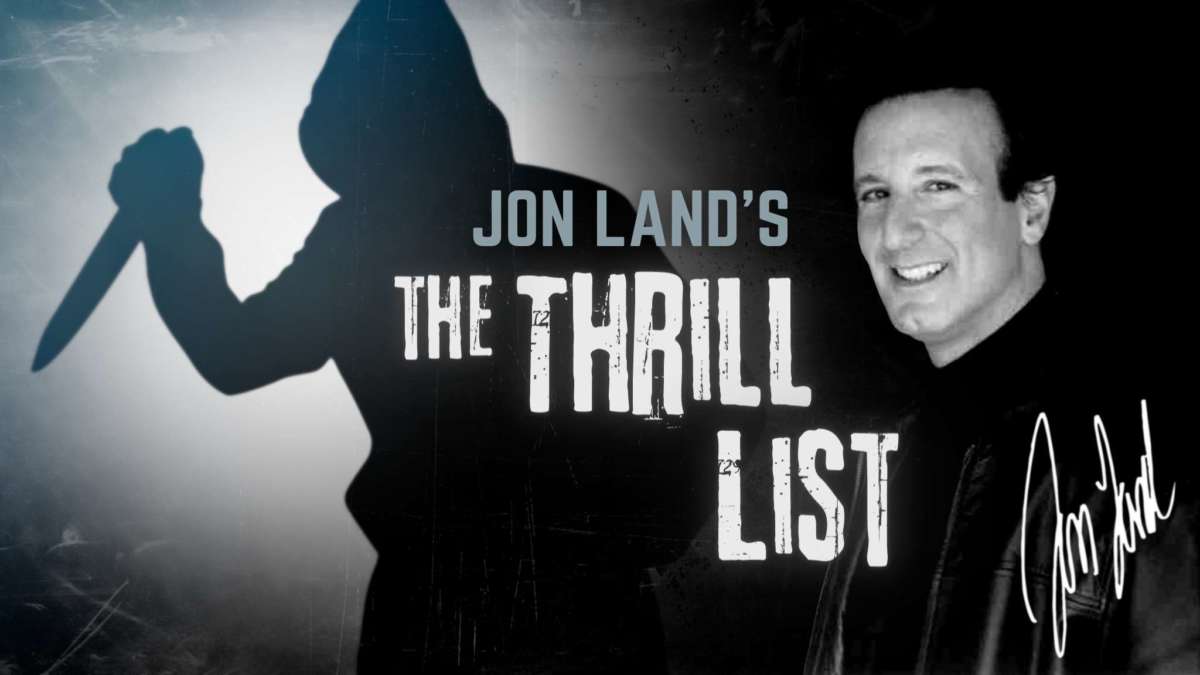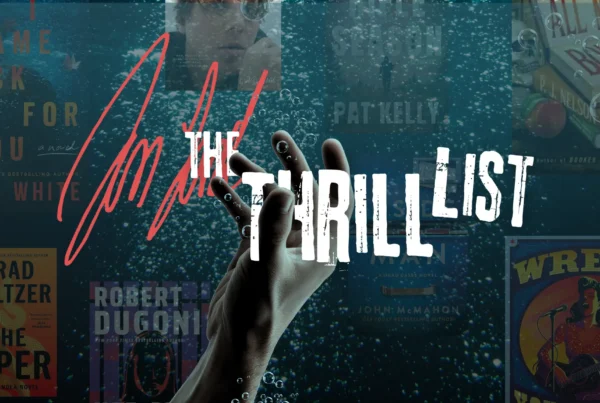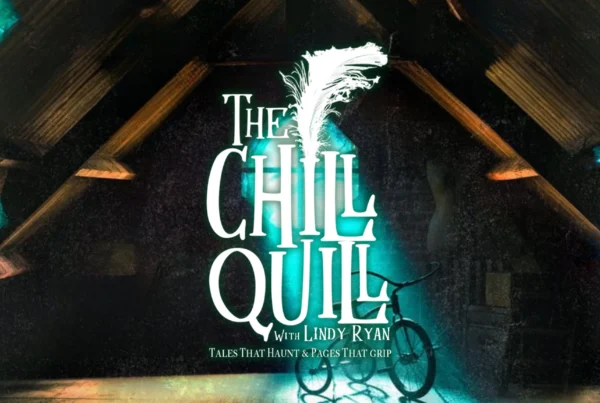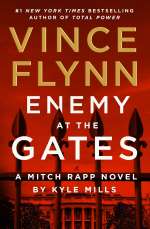
Enemy at the Gates by Kyle Mills
There’s something oddly appropriate about reading a Vince Flynn book in the shadow of September 11. That’s because Flynn became a household name in the wake of 9/11 by sending the stalwart Mitch Rapp after the monsters haunting our dreams. We lost Flynn much too young to prostate cancer, but the series has continued in the supremely able hands of Kyle Mills with his latest effort, Enemy at the Gates (Atria), representing the apex of his work thus far.
This time out, Rapp and company face an even greater foe in the form of the world’s first trillionaire, Nicholas Ward, who has the chops of a post-modern Goldfinger or Dr. No from the world of James Bond. In lesser hands, such a premise would be fodder for the incredulous. In Mills’ firm grasp, though, this all-too-pointed tale of multinational corporations seeking to run the world feels all too real and maybe even scarier than the portent of 9/11.
Enemy at the Gates is pure, sizzling storytelling at its level best. The kind of thriller you hope doesn’t mirror reality, while fearing it does from the moment you flip the last page.
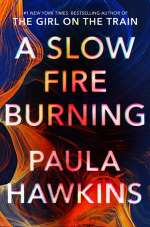
A Slow Fire Burning by Paula Hawkins
Paula Hawkins’ latest twist-laden, taut tale, A Slow Fire Burning (Riverhead), features three women, one of whom is likely a murderer and all of whom are riddled with flaws and secrets.
In the aftermath of a young man’s horrific death, those three femme fatales all emerge as suspects. There’s a lover, an aunt and a particularly nosy neighbor. Typically for Hawkins, none of them can be trusted, even their points of view are rendered unreliable. It seems obvious one of them is the killer, but red herrings are another staple of the author who rocketed to literary fame and fortune with The Girl on a Train.
Speaking of which, there’s a “been there, done that” feel to A Slow Fire Burning, as if Hawkins is telling the same joke with a different punchline. But the book is distinguished by its pitch perfect plotting and the masterful puzzle it leaves for us to assemble. (Read BookTrib’s review here.)
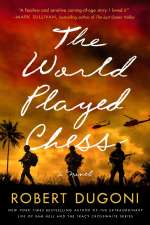
The World Played Chess by Robert Dugoni
I’ve been a Robert Dugoni fan long before he broke sales records on Amazon. But in the wondrously brilliant and poignant The World Played Chess (Lake Union), he has outdone himself and practically everyone else writing today.
The story follows recent high school graduate Vincent Bianco coming of age while spending the summer working alongside a pair of Vietnam vets, an experience that changes his life forever. The lessons he learns will be tested forty years later as he prepares to send his own son off to college, triggering memories that reveal secrets and truths he’s long kept from even himself while he feels his son slipping from his grasp just as his own childhood did.
While not a Vietnam novel per se, The World Played Chess resembles Tim O’Brien’s The Things They Carried and Philip Caputo’s A Rumor of War in its sheer emotional resonance. Dugoni, though, seems to be channeling the lyrical storytelling magic of the great Pat Conroy more. The World Played Chess is this generation’s The Prince of Tides, a candidate for best novel of 2021.
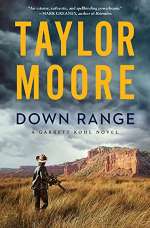
Down Range by Taylor Moore
In his debut novel, Down Range (William Morrow), Taylor Moore seems to be channeling the triumvirate of Cormac McCarthy, C. J. Box and Rhode Island’s own Don Winslow. Read on, before you roll your eyes at that.
Celebrated undercover DEA agent Garrett Kohl has fought many battles in the war on drugs far from home, but what happens when a different kind of war hits him where he lives? For reasons Moore slowly reveals, the languid Texas ranching town, where he is finally able to seek solace with his family, is taken over by skullduggerous figures reminiscent of Western villains of lore. True to form, this modern-day take on that form frames Kohl as a kind of lone gunman standing up against them, a la Shane versus the Rykers or Wyatt Earp versus the Clantons.
The result is a masterwork of classic storytelling, a man defending his own in the best tradition of a John Wayne or Clint Eastwood film. Think No Country for Old Men with Box’s Joe Pickett taking over for Ed Tom Bell. Down Range is downright awesome. (Read BookTrib’s review here.)
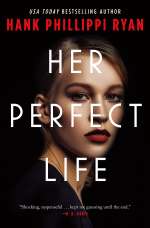
Her Perfect Life by Hank Phillippi Ryan
Hank Phillippi Ryan is back and better than ever with Her Perfect Life (Forge), a simmering cauldron of a tale that eventually boils over on high heat.
The stunning setup introduces us to Lily Atwood, a fabulously successful TV news reporter and the latest doppelganger for Ryan, a celebrated television journalist herself. Turns out many of Atwood’s most salacious reporting is the product of the same anonymous source. So, what is she to do when the next subject the informant spills about is her own life, opening doors Atwood thought were sealed forever?
This is tense and terrific storytelling of the highest order, as we are treated to a front-row seat for the unnerving deconstruction of the book’s would-be hero’s life. Her Perfect Life is, well, as close to perfect as a psychological thriller can be.
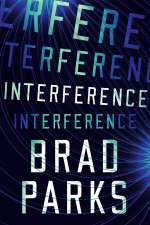
Interference by Brad Parks
Ever since the death of Michael Crichton, we’ve been waiting for his successor to emerge. Looks like that wait is over in the person of Brad Parks whose latest high-tech thriller, Interference (Thomas & Mercer), echoes of the master in all the right ways.
Matt Bronik is a quantum physicist involved in secret, cutting-edge research. The problem is whatever he’s researching comes with unsettling side effects — like inexplicable seizures, which are growing worse. The book shifts into overdrive when Bronik vanishes, and it’s left to his wife Brigid to sort through the muddled morass of his work to solve the mystery of his disappearance and the role his research played in it.
You won’t find any dinosaurs here, but Interference carves out its own turf as a stunning and scintillating mix of technology and terror. Think Stranger Things for adults, further establishing Parks as the most likely heir to the throne of the man who gave us Jurassic Park.
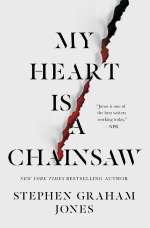
My Heart Is a Chainsaw by Stephen Graham Jones
Calling Stephen Graham Jones’ My Heart Is a Chainsaw (Gallery/Saga Press) a horror story doesn’t do this beautiful, poignant and ground-breaking tale the justice it deserves.
Jones, who cut his teeth on zombie and vampire tales, stretches his bounds to fabulous results here. Call it The Catcher in the Rye meets Friday the 13th, as high school senior and slasher film aficionado Jade Daniels takes center stage when the site of a murder spree is repurposed by greedy developers. In an ode to a classic trope of that genre, Jade finds herself the only one with the insight to stop the killer from leaving yet more bodies in his or her wake on the grounds of what has long been known as “Camp Blood.”
Labels aside, Jones is one of the most daring and nuanced novelists working today, a writer undeterred from tackling difficult societal issues and undaunted in his own sense of storytelling. My Heart Is a Chainsaw is a tome you wouldn’t be surprised to see winning a National Book Award, even as it leaves you chilled to the bone. (Read BookTrib’s coverage here.)
